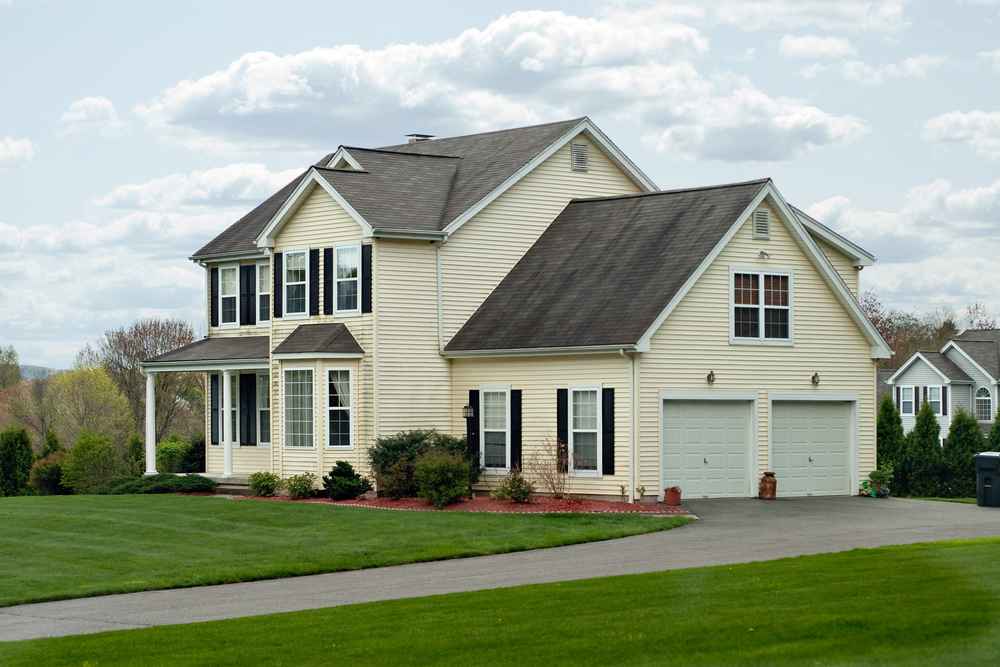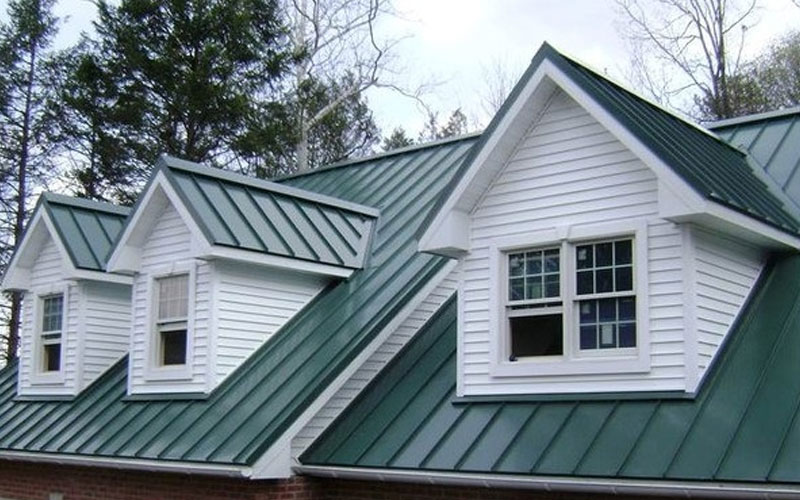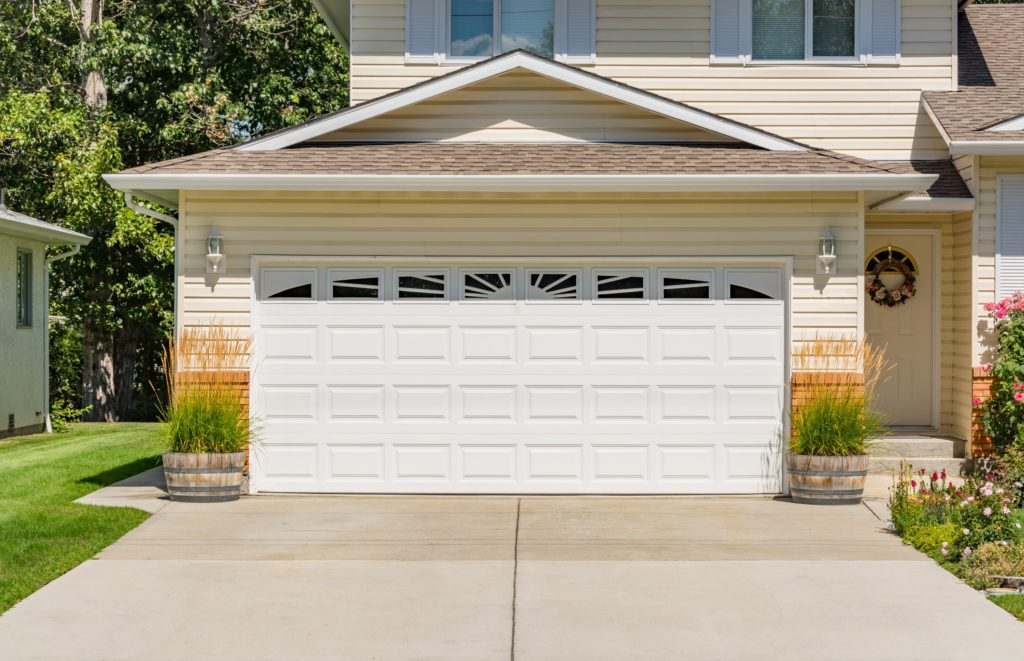How to Choose the Right Residential Roofing Company: Key Tips and Considerations
Your home is your sanctuary, a place where memories are made and cherished. A fundamental part of maintaining this sanctuary lies in ensuring that your roof—the very structure that shields your household from the elements—is in optimal condition. Choosing the right residential roofing contractor can be a daunting task, fraught with risks and uncertainties. But fear not! We’ve compiled a comprehensive guide to help you navigate this crucial decision-making process, ensuring that you find a contractor who offers quality, reliability, and peace of mind. Buckle up as we delve into the essential tips and considerations for selecting the best residential roofing company.
Evaluating Credentials and Experience
When it comes to hiring a roofing contractor, verifying their credentials should be your top priority. Think of credentials as the foundation upon which the trust and reliability of a contractor are built. One essential credential is licensing, which indicates that the contractor complies with regional standards and regulations. This means they have passed certain exams, demonstrated proficiency in their trade, and upheld specific ethical standards.
Bonding is another crucial aspect. A bonded contractor offers you financial protection in the unlikely event that they fail to complete the job or meet contractual obligations. Essentially, bonding acts as a safety net, giving you peace of mind that you won’t be left in the lurch if something goes wrong.
Insurance, particularly liability and workers’ compensation insurance, is non-negotiable. It shields you from potential liabilities that could arise if accidents or property damage occur during the project. Without proper insurance, you could be held financially responsible for any mishaps, making it imperative to ensure that your contractor is adequately covered.

Residential Roofing Company
Assessing Experience: The Cornerstone of Quality Workmanship
Experience is more than just a number; it’s a testament to a contractor’s ability to deliver high-quality work consistently. An experienced roofing contractor brings years—sometimes even decades—of practical knowledge to the table. They’ve seen it all, from minor roof repairs to major installations, and have honed their skills through countless projects.
When interviewing potential contractors, delve deep into their experience, especially with residential roofing projects. Ask them to share specific examples of past work, including any challenges they faced and how they resolved them. This can give you a clearer picture of their problem-solving abilities and their commitment to quality.
Additionally, inquire about their familiarity with the type of roofing material you plan to use. Whether it’s asphalt shingles, metal roofing, or clay tiles, each material has its unique installation techniques and challenges. A contractor well-versed in your chosen material will likely deliver a superior installation, ensuring longevity and performance.
Certifications and Professional Affiliations: Markers of Excellence
Certifications from roofing material manufacturers are a hallmark of a reputable contractor. These certifications often require contractors to undergo rigorous training and demonstrate proficiency in installing specific materials according to the manufacturer’s standards. Such credentials not only assure you of their technical expertise but also often come with extended warranties on materials and workmanship.
Professional affiliations, like membership in the National Roofing Contractors Association (NRCA), are another positive indicator. These organizations promote industry standards, provide ongoing education, and require members to adhere to ethical guidelines. A contractor who invests in such memberships demonstrates a commitment to staying current with industry best practices and continually improving their skills.
Red Flags: Warning Signs to Watch Out For
While evaluating potential contractors, be vigilant for red flags that could indicate subpar service or potential scams. Contractors who cannot provide proof of their credentials—such as licenses, bonds, or insurance—should be avoided. This lack of transparency often signals unprofessionalism and can expose you to significant risks.
Be cautious of roofing contractors who pressure you to sign contracts hastily. High-pressure sales tactics are often used to prevent you from thoroughly reviewing the terms and making an informed decision. Similarly, be wary of those requesting large upfront deposits. While a small deposit is standard practice, an excessive one can be a red flag indicating financial instability or a potential scam.
Lastly, avoid contractors who quote prices significantly lower than the market rate. While it might be tempting to go with the lowest bidder, remember that you often get what you pay for. Rock-bottom prices can be indicative of cut corners, inferior materials, or inexperienced labor—all of which can lead to costly problems down the line.
By carefully evaluating credentials and experience, you’ll be well-equipped to choose a roofing contractor who meets high standards of professionalism, reliability, and quality.

Residential Roofing Service
Researching Reputation and Reviews
- The Importance of Reputation: A roofing contractor’s reputation is a window into their reliability and the quality of their work. A solid reputation often speaks volumes about a contractor’s professionalism, customer service, and craftsmanship. Begin your evaluation by asking the contractor for references from previous clients. This step allows you to speak directly with homeowners who have firsthand experience with the contractor’s work. By doing so, you can gauge their levels of satisfaction and get an honest assessment of the contractor’s performance throughout the project. Listening to past customers can reveal how well the contractor communicates, adheres to timelines, and handles any issues that arise during the job.
- Online Reviews and Ratings: A Treasure Trove of Insights: In today’s digital age, online reviews are invaluable. Websites like Google Reviews, Yelp, and the Better Business Bureau (BBB) serve as platforms where customers can share their experiences, both positive and negative. As you sift through these reviews, look for recurring themes. Consistent praise in areas such as punctuality, quality of work, and customer service can reassure you of the contractor’s strengths. Conversely, repeated complaints about similar issues can alert you to potential red flags. Another crucial aspect is observing how the contractor responds to negative reviews. A professional, courteous response that seeks to address and rectify the issue demonstrates a genuine commitment to customer satisfaction and problem resolution.
- Social Media Presence: Transparency and Engagement: A contractor’s social media presence can provide additional layers of insight. Active profiles on platforms like Facebook, Instagram, and LinkedIn often feature regular updates, photos of completed projects, and interactions with followers. This level of transparency shows that the contractor is proud of their work and confident enough to showcase it publicly. Moreover, engaging with followers, responding to comments, and sharing industry-related content reflects a commitment to staying connected with the community and keeping up-to-date with roofing trends.
- Word-of-Mouth Recommendations: Tried and True: Never underestimate the power of word-of-mouth recommendations. Personal insights from friends, family, and neighbors who have recently had roofing work done can be incredibly reliable. These firsthand accounts can provide a clear picture of what to expect in terms of quality, professionalism, and value for money. Ask around to see if anyone can recommend a trusted contractor. Real-life experiences from people you trust can sometimes be more revealing and dependable than online reviews.
By thoroughly researching a contractor’s reputation and reviews, you can make an informed decision that ensures you hire a reliable, professional, and skilled roofing contractor for your home.
Understanding Estimates and Contracts
- Detailed Estimates: The Blueprint of Transparency: Securing detailed written estimates from multiple roofing contractors is an essential step in the decision-making process. Each estimate should be comprehensive, offering a clear breakdown of all costs involved. This includes labor, materials, permits, disposal fees, and any other associated expenses. Such transparency enables you to make an informed comparison between different contractors. It ensures that you’re not only aware of what you’re paying for but also how each cost contributes to the overall project. Detailed estimates prevent hidden fees from creeping up later on, giving you a solid foundation to evaluate the true value each contractor offers.
- Comparing Bids: Beyond the Bottom Line: When it comes to comparing bids, it’s tempting to gravitate towards the lowest offer. However, this approach can be misleading and potentially costly in the long run. It’s crucial to delve deeper, considering factors beyond just price. Evaluate the quality of materials proposed, the scope of work outlined, and the reputation of the contractor. Sometimes, a low bid might be indicative of subpar materials or shortcuts that compromise the integrity and longevity of your new roof. On the other hand, a slightly higher bid might include premium materials and more experienced labor, ensuring a durable and aesthetically pleasing result. Balancing cost with quality and reliability is key to a successful roofing project.
- Clear Contracts: Setting Expectations in Stone: Once you’ve selected a contractor, it’s vital to have all agreements meticulously documented in a clear, written contract. This contract should serve as a detailed roadmap of the project, outlining the scope of work, project timeline, payment schedule, and warranty details. Clarity in these areas minimizes misunderstandings and ensures that both parties have a mutual understanding of expectations and responsibilities. A well-drafted contract acts as a safeguard, providing legal protection and setting the stage for a smooth, transparent process from start to finish.
- Reading and Understanding the Contract: Every Detail Matters: Before putting pen to paper, take the time to thoroughly read and understand the contract. Pay close attention to clauses related to changes in the project scope, unforeseen costs, and dispute resolution mechanisms. These sections are particularly crucial as they address how potential issues will be managed, safeguarding you against unexpected surprises. If anything is unclear or raises concerns, don’t hesitate to discuss it with the contractor. Open communication at this stage can prevent many potential problems and ensure that you’re fully comfortable with the agreement. Clear understanding and consent are foundational to a successful partnership and a satisfying end result.
By meticulously evaluating estimates and contracts, you lay the groundwork for a roofing project that is transparent, fair, and successful. This attention to detail ensures that there are no surprises along the way and that you and your contractor are aligned in your expectations and commitments.

Residential Roofing Service
Outline 4: Assessing Communication and Professionalism
- Importance of Communication: Effective communication is key to a successful roofing project. From the initial consultation to the final inspection, clear and consistent communication ensures that everyone is aligned. Gauge the contractor’s responsiveness to your inquiries and their willingness to answer your questions.
- Professionalism: Professionalism encompasses more than just communication. Observe the contractor’s punctuality, organization, and demeanor during meetings. Professional behavior often translates to a disciplined approach to the job and respectful interactions with their crew and customers.
- Project Management: Inquire about the contractor’s project management process. Will there be a dedicated project manager or point of contact? How will progress updates be communicated? Understanding how the contractor manages their projects can give you confidence in their ability to handle your roofing needs efficiently.
- Problem Resolution: Discuss how the contractor handles unexpected issues or changes during the project. A competent contractor should have a plan for addressing problems promptly and effectively. Their willingness to discuss potential issues upfront demonstrates transparency and a commitment to customer satisfaction.
Evaluating Warranties and Insurance
- Types of Warranties: Your Shield of Assurance: Warranties are an indispensable aspect of any roofing project, providing you with a layer of security and peace of mind. There are generally two pivotal types of warranties to consider: the manufacturer’s warranty and the contractor’s workmanship warranty. The manufacturer’s warranty is designed to cover any defects in the roofing materials themselves. This means that if the materials fail or degrade prematurely due to manufacturing faults, you are protected. On the other hand, the contractor’s workmanship warranty addresses installation errors. This warranty ensures that if the roof was not installed correctly, the contractor would be responsible for rectifying the issues. Both types of warranties are essential for comprehensive coverage, safeguarding your investment from various potential pitfalls.
- Understanding Warranty Terms: Reading Between the Lines: When it comes to warranties, the devil is in the details. It is paramount to meticulously review the terms of the warranties provided. Pay close attention to what is covered, the duration of the coverage, and any conditions or exclusions that may apply. Understanding these elements can save you from unpleasant surprises down the line. For instance, a longer and more comprehensive warranty often signals the manufacturer’s and contractor’s confidence in their materials and workmanship. Additionally, knowing the terms helps you understand your responsibilities, such as regular roof maintenance, to keep the warranties valid. This thorough comprehension ensures you are fully aware of your rights and protections.
- Insurance Coverage: The Safety Net You Can’t Afford to Ignore: In addition to warranties, verifying that the contractor carries adequate insurance is crucial. Insurance is your safety net, protecting you from financial liability should anything go awry during the roofing project. General liability insurance is designed to protect your property from any accidental damage caused during the project, ensuring that you are not left to foot the bill for roof repairs. Workers’ compensation insurance, on the other hand, covers injuries sustained by workers on your property. Without this coverage, you could be held financially responsible for medical bills and other related expenses. Always request proof of insurance and take the extra step to verify its validity with the insurance provider. This verification is crucial to ensure that the coverage is current and sufficient for the scope of your project.
- Verifying Coverage: Confirming Your Protection: Never simply take the contractor’s word for it when it comes to insurance coverage. Take proactive measures to confirm that the policy is indeed active and adequately covers your specific project requirements. Contact the insurance company directly to validate the details provided by the contractor. This step is not merely administrative; it is essential for your peace of mind and financial protection. Ensuring that all insurance policies are up to date and comprehensive shields you from unexpected liabilities and affirms that you are working with a responsible and professional contractor.
By carefully evaluating warranties and insurance coverage, you fortify your roofing project against unforeseen complications and affirm that both the materials and workmanship meet high standards. This diligence translates to long-term peace of mind and a robust, durable roof that stands the test of time.
Considering Local Knowledge and Flexibility
- Local Knowledge: A contractor with local knowledge understands regional climate conditions, building codes, and permit requirements. This expertise ensures that your roof is designed and installed to withstand local weather patterns and complies with regulations.
- Building Codes and Permits: Ask the contractor about their experience with local building codes and obtaining permits. A knowledgeable contractor will handle the permitting process efficiently, ensuring that your project meets all legal requirements and passes inspections.
- Flexibility and Customization: Every roofing project is unique. A good contractor should be flexible in accommodating your specific needs and preferences. Whether you want a particular roofing material, design, or color, the contractor should be willing to customize the project to suit your vision.
- Handling Changes: Discuss how the contractor manages changes or modifications during the project. Unexpected issues may arise, requiring adjustments to the original plan. A flexible contractor will communicate these changes promptly and work with you to find the best solutions, ensuring the project stays on track without compromising quality.

Professional Roofing Service
Conclusion
Choosing the right residential roofing experts is a critical decision that impacts the longevity and integrity of your roof. By evaluating credentials and experience, researching reputation and reviews, understanding estimates and contracts, assessing communication and professionalism, evaluating warranties and insurance, and considering local knowledge and flexibility, you can make an informed choice. This comprehensive guide provides the essential tips and considerations to help you select a contractor who will deliver quality work, ensure a smooth process, and ultimately protect your home for years to come. Remember, the right contractor is not just a service provider but a partner in safeguarding one of your most significant investments—your home.
https://www.google.com/maps?cid=465871782046421571




